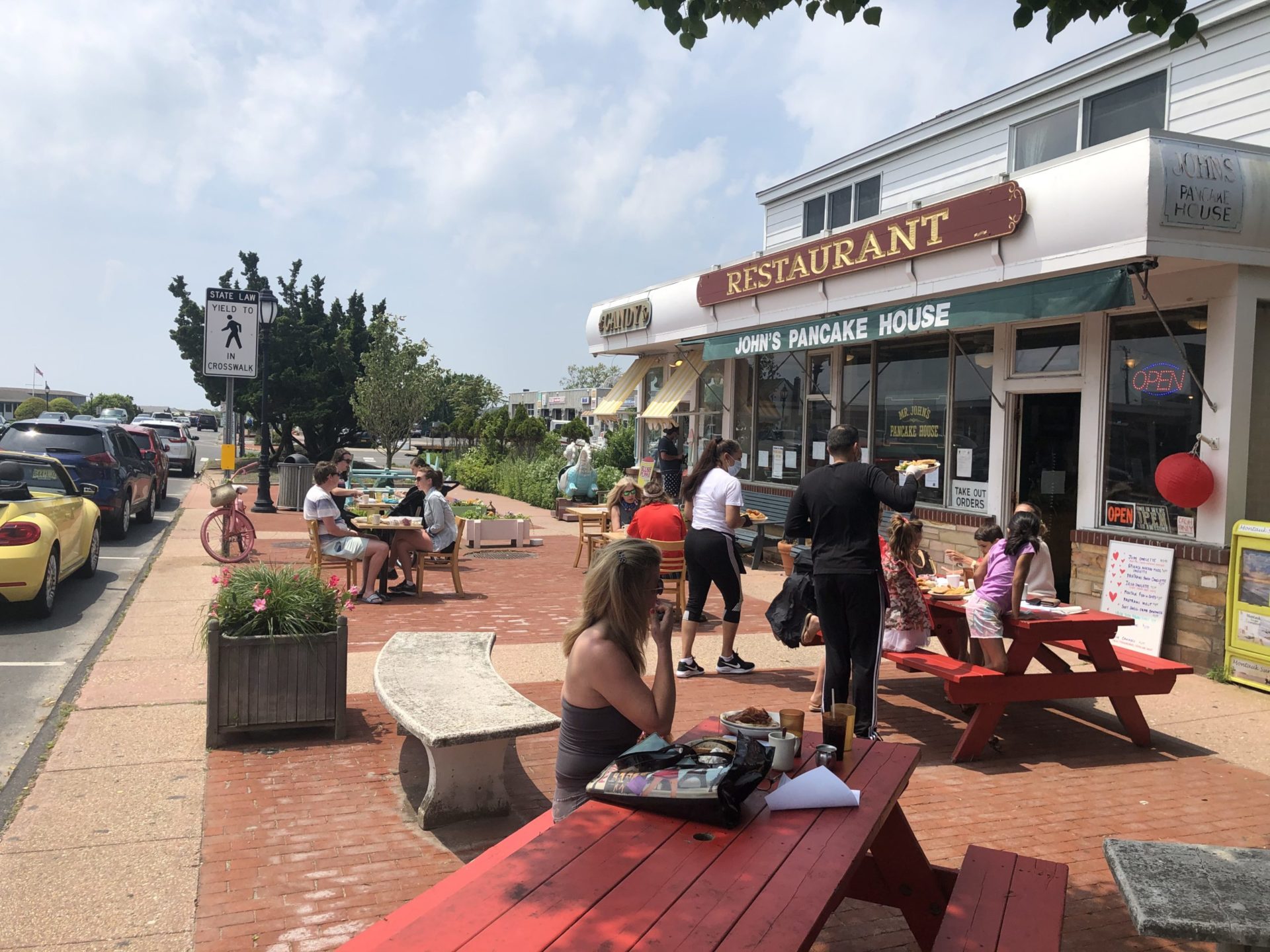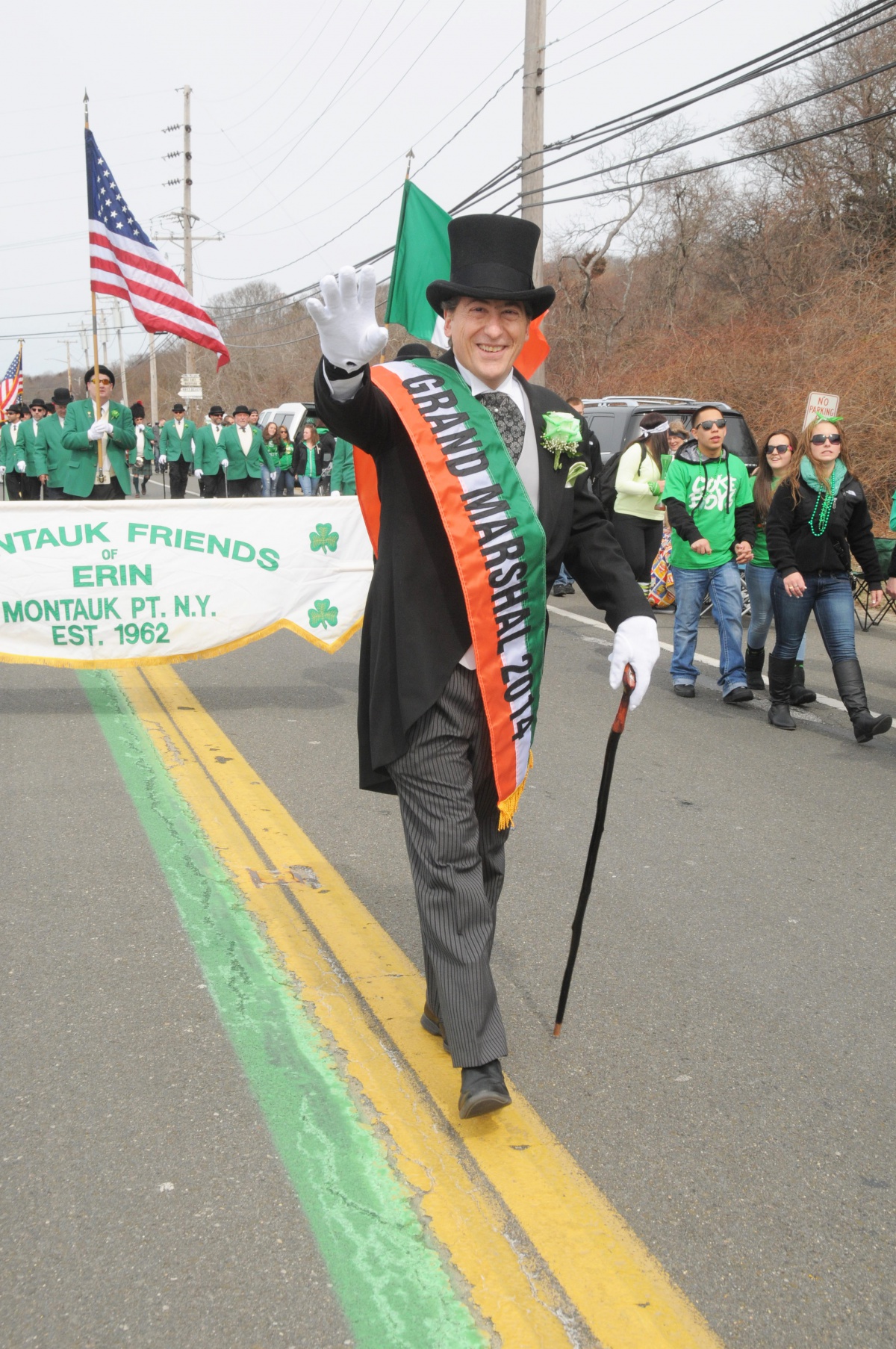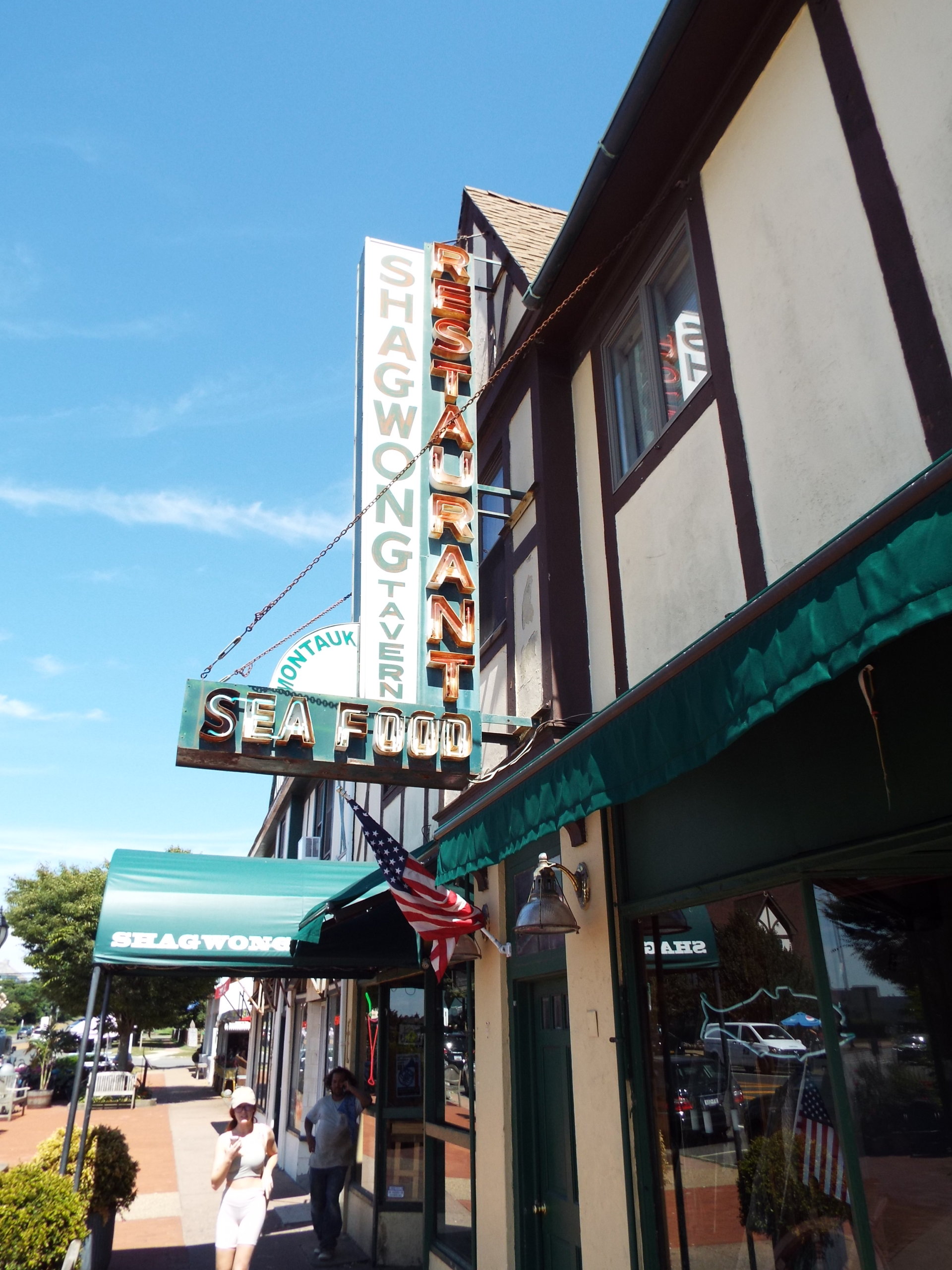End Fines: Montauk Restaurants at Odds with East Hampton Town

Though it’s been a Montauk institution since 1920 and has operated as a nightclub since at least the 1960s, Shagwong Tavern has racked up a bunch of tickets over the summer because they allowed dancing on the premises.
“We don’t understand why the town is fighting us to change our use, which has always been how Shagwong Tavern has operated,” says Jon Krasner, who’s owned the establishment for the past seven years.
Krasner hired an attorney to appear before the Zoning Board of Appeals to prove that Shagwong has operated this way for many years without interference. A big brouhaha is being made over dancing on Saturdays in summer — a total of 12 days in the entire year, Krasner asserts.
“The pendulum shouldn’t swing so far to one side for 12 nights out of 365 nights,” he says.
Krasner’s problems appear to be part of a pattern multiple businesses say they have encountered soon after the Town of East Hampton lifted its COVID-19 emergency declaration in April 2022.

COMPLAINTS FROM THE MONTAUK CHAMBER
Since April, several Montauk businesses have had issues with the town and its enforcement, notes Paul Monte, president of the Montauk Chamber of Commerce.
“There have been issues with respect to outdoor dining,” says Monte, who also chairs the town’s business committee. “There have been issues with respect to occupancies. There have been issues with respect to notice of violations.”
Many chamber members feel there was no real transition period after the lifting of the emergency declaration, even though there were still many impediments to going back to doing business as usual, such as people not being comfortable with dining indoors.
During the two-year emergency period, restaurateurs were permitted to move up to 100% of their indoor seating outdoors, as long as they filed plans with the fire marshal, placed tables in a safe manner and didn’t impede pedestrian traffic.
After April, the town abruptly changed their enforcement methodology.
“Notices would come in the mail weeks, sometimes a month later, because of the way they were filing the notices of violation,” Monte says. “And people were being hauled into the State Liquor Authority for violations that they never even knew they had.”
In the past, violations were noticed to the on-duty manager, who’d be given an opportunity to rectify the problem right away, by asking people to leave and being more vigilant in the future.
“There was no advance notice that the enforcement agencies were going to come down so hard and so differently on all of that before they did,” Monte says.
Many of the impacted chamber members have been in business for years in Montauk and were very upset by this new, super-charged enforcement.
During the peak of COVID, businesses demonstrated that outdoor dining can be done safely and efficiently, yet as soon as they could do so, town officials reverted back to the stringent policy without giving anyone the opportunity to adjust, adds Monte.

COMMUNICATION IS KEY
Members of the chamber have been in touch with the town to address their concerns and will continue to advocate to the town board to “find a healthy middle ground that allows businesses to operate, the public to be safe, and the town and its residents to feel that everything is being done reasonably,” Monte says.
A member of the Montauk Chamber of Commerce, Lewis Gross says many Montauk restaurants and hotel business owners feel like they’ve been vilified by the town which doesn’t communicate with them, despite their being the major employers of the hamlet.
“What we would like to see is better communication,” Gross says. “If there’s something a restaurant does they don’t like, they should let the restaurant know rather than immediately file a complaint with the liquor authority or put people’s livelihoods at risk without any notice.”
Krasner concurs that sending notifications of restaurant infractions to the State Liquor Authority is a serious matter.
“That goes on our record forever, whether we’re guilty or not guilty,” Krasner says. “If this is public safety and we want to all work together, please keep it in-house.”
Though he believes government and businesses are trying to do the right thing, Krasner says things have become misguided on both sides and communication needs to improve.
“Businesses are the lifeline of the town; the government is supposed to run the town,” Krasner says. “We have to work together.”
Through the years, the Town of East Hampton has monitored outdoor dining and with COVID, the state allowed for businesses to be creative, using right of ways and other adjoining properties for outdoor dining, notes East Hampton Councilman David Lys.
Recognizing the benefits of extending dining outdoors during the pandemic, the town board passed legislation allowing businesses, if they met criteria, to offer it.
“The town board was allowed to do that on properties that the town controlled, not on properties which other municipalities controlled, such as the county or the state,” Lys says, adding that the town recently worked out an agreement with the state to utilize Route 27, a state roadway.
After the executive orders were terminated on both state and town levels, town officials had to revert back to the town code and met with Montauk chamber members early in the summer, months later than they typically meet, Lys says.
In the future, these town/chamber meetings should happen in mid-March, advises Lys.
“I always say, ‘If you’re not busy by St. Paddy’s Day, you’re already behind for the summer season,” Lys says, adding that they should review new legislation as well as older regulations when they meet.
The goal, Lys says, is to ensure tourists can enjoy the area, safely, effectively, and within the character of the community.
“Unfortunately, it was maybe a little too late last season, but we got to it and we look forward to working outreach with the business community earlier this [coming] year,” Lys says.
Fresh off his success in developing Miami Beach, Carl Fisher turned Montauk into a resort town nearly one century ago. Ever since, people have flocked to “The End” for summertime recreation.
“Why don’t we make it safer to have fun instead of trying to shut the fun down?” Krasner asks. “People want to dance. Can you imagine me getting a ticket for moving a table for dancing?



